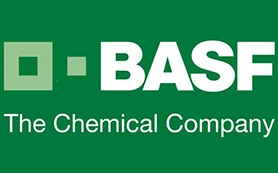
In a billion-dollar deal announced yesterday, BASF plans to acquire horticulture technology company Becker Underwood.
With the purchase, which is expected to close by the end of the year, the German manufacturer would gain access to a wide range of coatings and biological technology to complement its already strong foundation of insecticides, herbicides and fungicides.
The deal continues BASF’s move from a focus purely on plant protection to one on plant health. The company launched its Intrinsic line in the golf market in 2010, and has been slowly expanding it since. The product group, which includes an EPA-approved plant health label, has been shown to improve disease control, response to heat and mechanical stress and growth efficiency in plants.
Becker Underwood will be integrated into a new functional crop care unit that will operate within BASF’s crop protection division, the company says. The group will spend its time developing new plant health, nutrient management and water management products.
“This new unit will really address the innovation side, the development side of new products. That’s really the major change within the organization,” says Nevin McDougall, senior vice president of BASF’s Crop Protection Group in North America.
We caught up with McDougall to learn more about what this acquisition means for the company and the green industry at large.
Lawn & Landscape: What motivated this purchase?
Nevin McDougall: I think the top line of the story here is addressing the changing needs of our customers and broadening our portfolio to have broader range of solutions to address the changing needs of the marketplace. Whether that’s the row crop market, the turf industry, landscaping, ornamentals – clearly our customers have a lot of changing needs. Not only traditional pest management, but also nitrogen management, water management. We felt the acquisition of Becker Underwood made a very nice complement for our existing activities.
L&L: Was there any specific technology that Becker Underwood had that you wanted? When I think of Becker Underwood, I think of seed treatment….
L&L: What new technology will likely make its way into the professional markets first?
L&L: BASF and many other manufacturers are moving away from a focus on plant nutrition to a focus on plant health. Can you tell me why you’re taking this plant health positioning, and what that means for you guys in the market?
L&L: Any other acquisitions on the horizon that we should know about?
L&L: Are we likely to see a move toward adjuvants being co-packaged with fungicides?
L&L: Anything else we haven’t covered that you’d like to share with our readers?
The author is editor and associate publisher of Lawn & Landscape magazine.
Stress protection
At this summer's agriculture media summit in Chicago, Jan Buberl of BASF talks about the company’s Intrinsic line and how it will help turf remain healthy in the cold and during a drought.
Latest from Greenhouse Management
- Terra Nova releases new echinacea variety, 'Fringe Festival'
- AmericanHort expands greenhouse training with new Section Grower Certification
- Sakata Seed America celebrates renovation of Cal Poly greenhouse complex
- American Horticultural Society names winners of 2025 AHS Book Awards
- Nufarm announces unified brand
- American Horticultural Society announces winners of 2025 Great American Gardeners Awards
- What growers can learn from amateur plant scientists
- Green Guide: Monarda punctata





